What Is An Ecolodge And How Does It Work (The Future of Travel Explained)
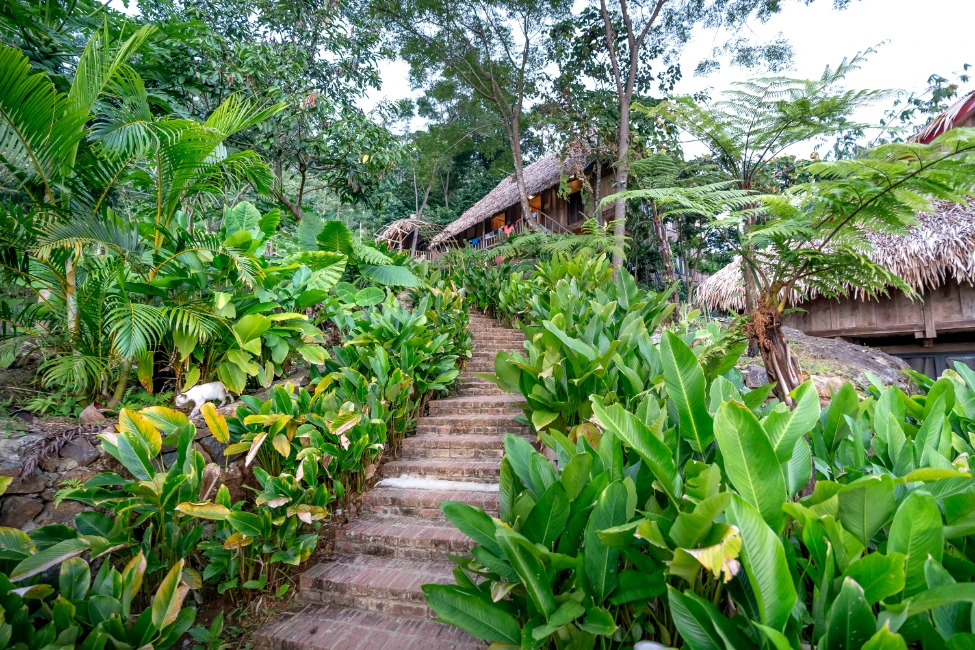
When you hear the word “ecolodge,” you might think of a rustic cabin in the woods with no running water or electricity. But that’s not necessarily the case.
An ecolodge is a lodge built and operated in an environmentally sustainable way and with respect toward the local community. This means that the lodge uses renewable energy sources, recycles and composts waste, and works to protect the local ecosystem.
Ecolodges can vary greatly in size and amenities, but they all share a commitment to sustainable tourism.
There are eco-lodges all over the world, from remote jungle lodges to urban hotels. And as awareness of the importance of sustainability grows, we can only expect to see more and more ecolodges popping up.
If you’re interested in learning more about eco-lodges and sustainable travel, read on for everything you need to know.
Ecolodges Explained
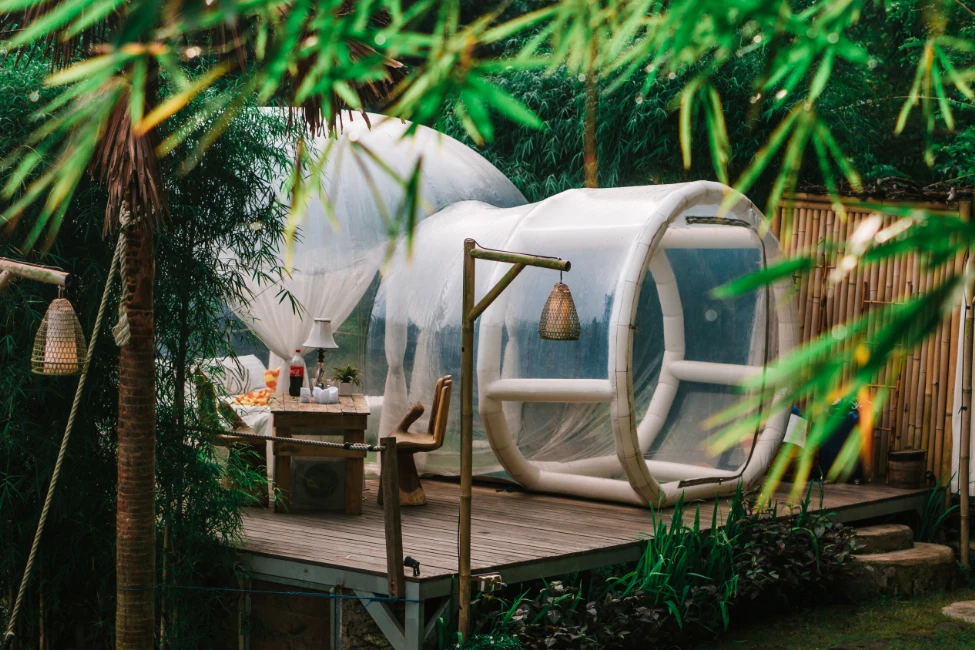
What Is An Ecolodge?
You may have heard the term “ecolodge” before but aren’t quite sure what it means. An ecolodge is a lodge that is environmentally friendly and sustainable. They are usually located in natural areas such as rainforests, deserts, or mountains. Ecolodges are designed to have minimal impact on the surrounding environment and often use renewable energy sources.
How Do Ecolodges Work?
Ecolodges are built with the environment in mind. They often use local materials and traditional construction methods. For example, an ecolodge in the Amazon rainforest might use bamboo for the walls and a thatched roof made from palm leaves.
Ecolodges also strive to be energy efficient. They may use solar panels to power the lodge or have a water filtration system that recycles greywater. Many ecolodges also have an organic garden to provide food for guests.
The Benefits of Staying in an Ecolodge
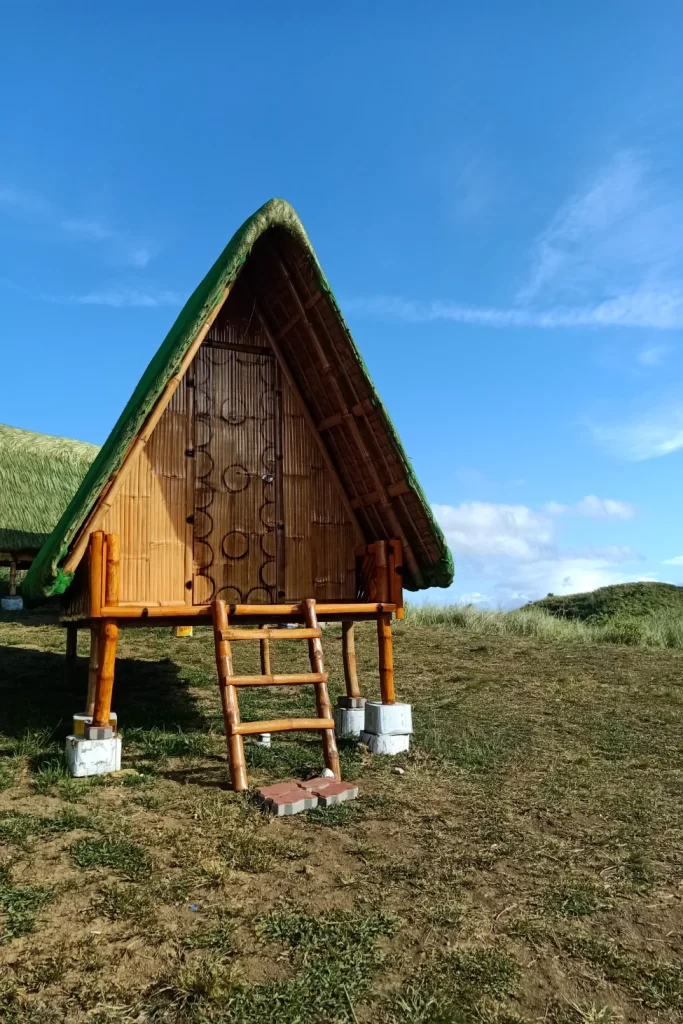
While you might sacrifice some of the amenities you’re used to when staying at an eco-lodge, there are plenty of benefits to staying in an eco-lodge that make it worth your while.
Here are three benefits of staying in an ecolodge that you might not have considered.
1. You’ll Be Forced to Unplug
In today’s world, it’s easy to get caught up in the hustle and bustle and feel like you’re always on the go. But when you stay at an ecolodge, you’ll be forced to slow down and disconnect from the outside world.
Most ecolodges don’t have televisions or Wi-Fi, which means you’ll have to find other ways to entertain yourself.
This can be a great opportunity to read that book you’ve been meaning to start, take a nature hike, or simply sit and enjoy the quiet.
2. You’ll Be Supporting The Local Community
When you stay at an ecolodge, you’ll be supporting local communities both economically and socially.
Ecolodges are typically owned and operated by local families, which means your tourist dollars will go directly into the local economy.
In addition, many eco-lodges work with local organizations to provide employment opportunities for community members.
So not only will you be getting a more authentic experience by staying at an eco-lodge, but you’ll also be helping to improve the lives of those who live there.
3. You’ll Be Connected to Nature
One of the best parts about staying at an ecolodge is that you’ll be surrounded by nature. This can provide a much-needed opportunity to reconnect with the natural world and appreciate all it offers.
Many ecolodges are located in remote areas, which means you’ll likely see plenty of wildlife during your stay. So if you’re looking for a chance to get away from it all and connect with nature, an eco-lodge is the place for you!
The Different Types of Ecolodges

There are many different types of eco-lodges, each with its own unique features and amenities. From eco-resorts to off-grid lodges, there’s an eco-lodge out there for everyone. When planning your next vacation, be sure to keep these different types of eco-lodges in mind! Here are a few types you might come across.
Off-Grid Lodges
Off-grid lodges are lodges that are not connected to the electrical grid. These lodges are typically powered by renewable energy sources like solar panels and wind turbines. Many off-grid lodges also have their own water treatment systems so they can recycle greywater for use in things like watering the gardens. Off-grid lodges are usually located in remote areas so they can take advantage of these alternative energy sources.
Eco-Resorts
Eco-resorts are lodges that are built and operated with sustainable tourism practices in mind. These resorts typically offer luxurious accommodations and amenities, as well as access to activities like hiking, biking, and kayaking. In this way, they bear some similarities to wellness retreats. Many eco-resorts also have on-site restaurants that serve food sourced by local farmers. In recent years, Costa Rica has become a top destination for travelers looking to stay at an eco-resort.
Sustainable Luxury Villas
Luxury villas with a focus on sustainability are another type of eco-lodge that offers travelers high-end accommodations while still being mindful of environmental impact. These villas are often built using sustainable materials and powered by renewable energy sources. These luxury villas also typically have on-site amenities like pools, spas, and gyms.
Ecolodge vs. Green Hotel
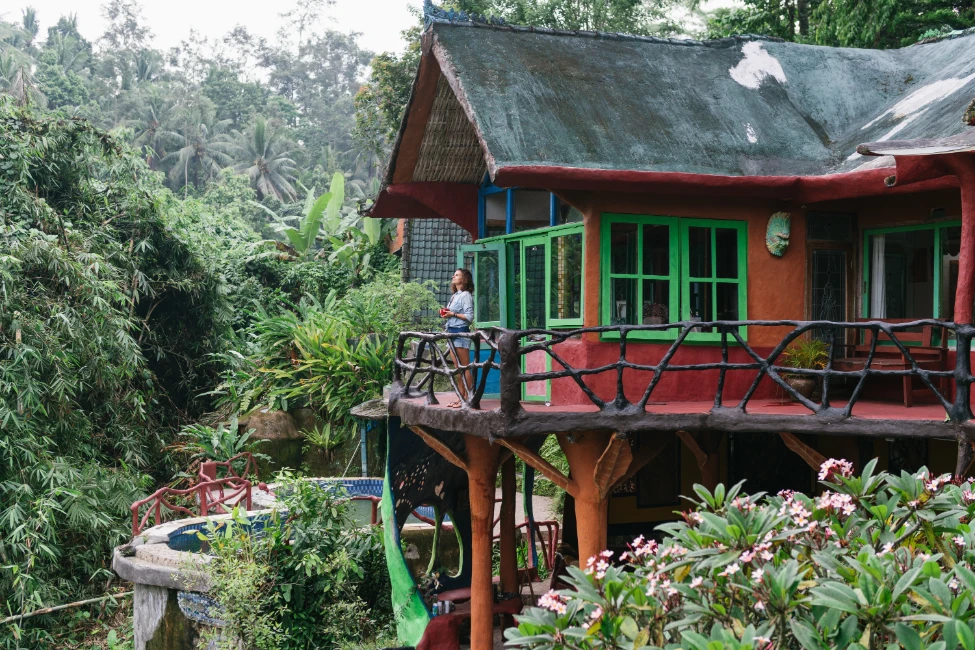
The terms “eco-lodge” and “green hotel” or “eco-hotel” are often used interchangeably, but there is a difference between the two.
Eco-lodges are lodges that are specifically designed to be environmentally friendly and sustainable. They usually use local materials, have organic gardens, and use renewable energy sources.
Eco hotels, on the other hand, are simply hotels that have implemented some green practices. For example, a green hotel might use energy-efficient lighting or recycle paper products.
A luxury safari camp, for example, will probably be a take on green hotels or an eco-resort rather than a traditional ecolodge.
While both eco-lodges and green hotels are good for the environment, eco-lodges tend to be more sustainable overall and focus on being part of the natural environment as much as possible.
The Future of Travel and How Ecolodges Will Play a Role
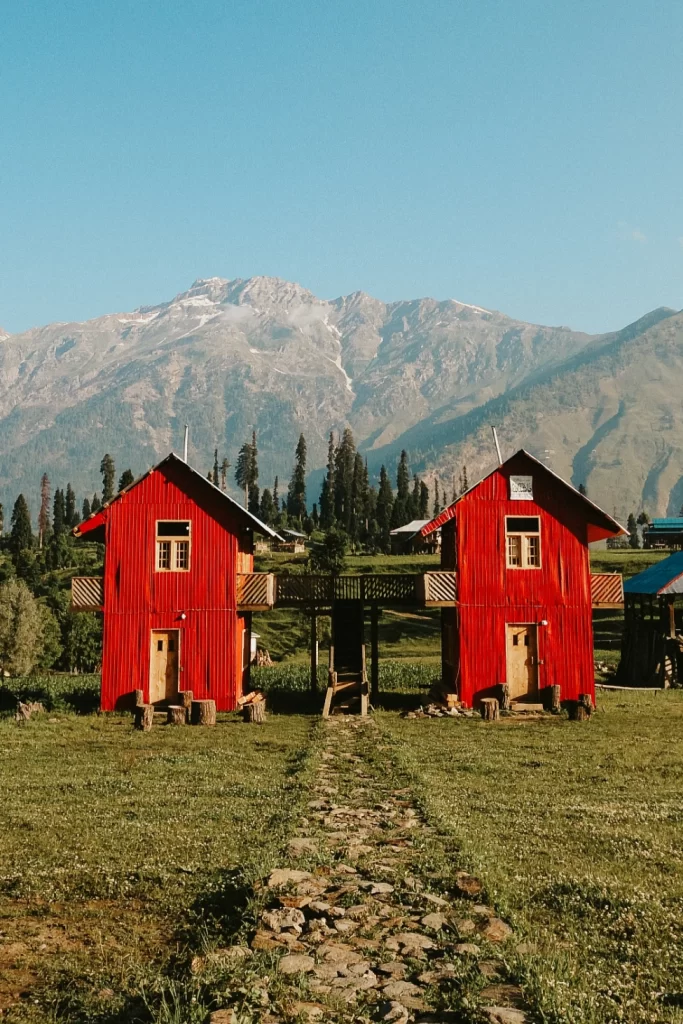
The way we travel is changing. As more and more people become aware of the environmental impact of tourism, they’re looking for ways to travel more sustainably.
Eco-tourism is one of the fastest-growing trends in travel, and ecolodges are leading the way with more environmentally friendly practices
Ecolodges offer travelers a chance to disconnect from the outside world, support local communities, and connect with nature.
As sustainable travel becomes more popular, ecolodges will play an increasingly important role in the future of travel.
What Is Sustainable Tourism?
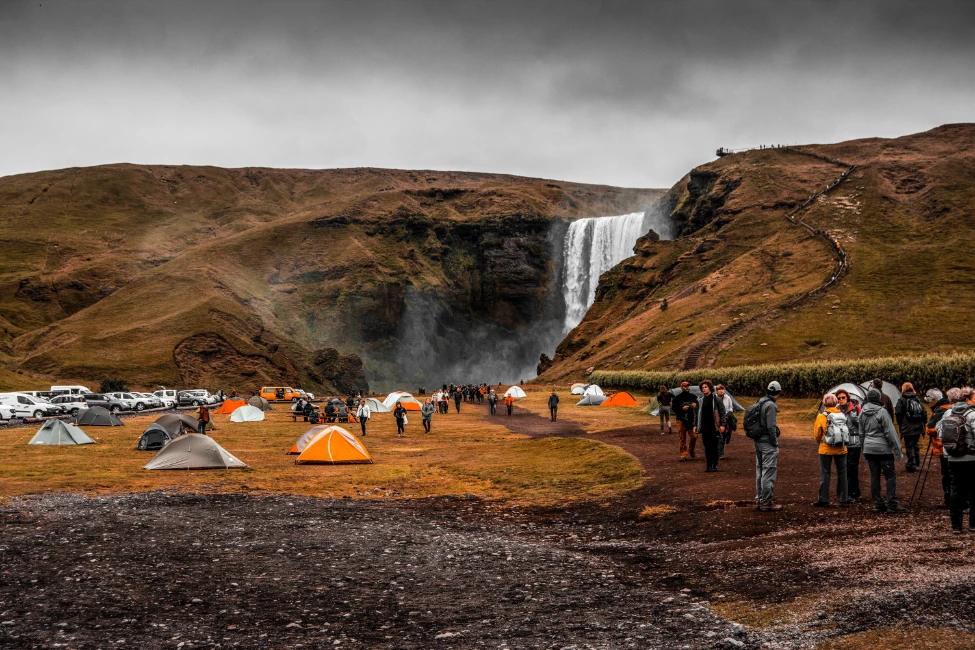
Sustainable tourism is tourism that is conducted in a way that is sustainable, meaning that it has a minimal negative impact on the environment and local communities.
This type of tourism is often based on the principles of green travel, which includes eco-friendly travel and respect towards local people and the natural environment.
There are many different ways to travel sustainably, and sustainable tourism businesses are working hard to make it easier for travelers to choose eco-friendly options.
Some sustainable tourism businesses offer green travel packages that include eco-friendly accommodations, transportation, and activities.
Others work to offset the carbon emissions of their guests, or they donate a portion of their profits to environmental causes.
Sustainable tourism businesses are often small, locally owned businesses that are committed to sustainable practices.
Tips for Traveling Responsibly
If you’re interested in eco-tourism but not sure where to start, here are five tips for traveling responsibly:
1. Do your research
Before you book a trip, take some time to research the company you’re booking with.
Make sure they have a good reputation and that their practices are sustainable.
2. Offset your carbon footprint
You can offset your carbon footprint by choosing eco-friendly travel options, such as flying less or taking the train instead of a plane.
3. Choose eco-friendly accommodations
When booking accommodations, look for hotels or lodges that are eco-friendly.
4. Support local businesses
Whenever possible, support local businesses while you’re traveling.
This includes everything from eating at local restaurants to buying souvenirs from local artists.
5. Respect the environment
Finally, remember to respect the environment you’re visiting.
This means taking care only to leave footprints behind (not trash) and not harming any plants or animals.
Following these tips will help you travel responsibly and ensure that your trip is eco-friendly.
Conclusion
Eco-tourism is one of the fastest-growing trends in travel, and ecolodges are leading the way with more environmentally friendly practices.
Ecolodges offer travelers a chance to disconnect from the outside world, support local communities, and connect with nature. Just imagine: a week away in a national park or lush tropical gardens!
As sustainable travel becomes more popular, ecolodges will play an increasingly important role in the future of travel. So, what are you waiting for? Start planning your eco-friendly vacation today!





